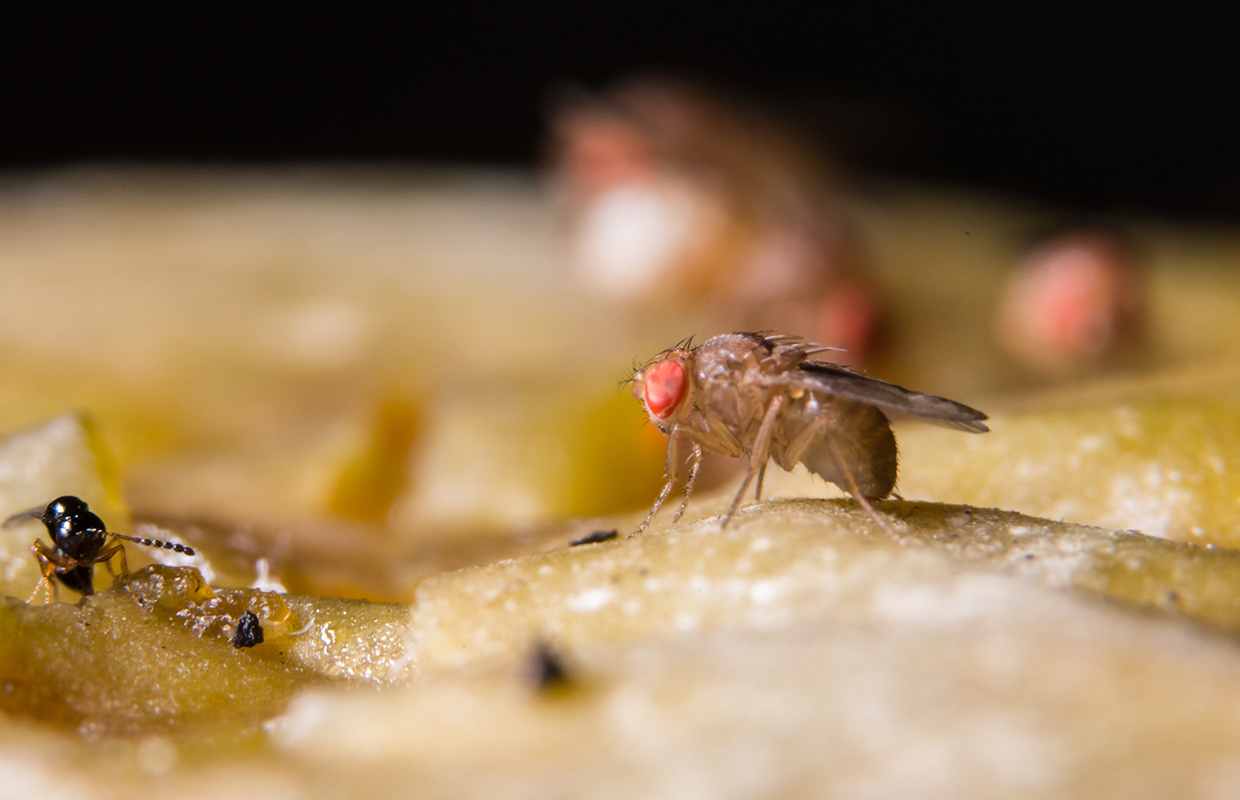
Two things are certain in the brewing industry:
- You will have a market for your product.
- You will have fruit flies in your establishment.
Statistics show that 6 out of every 10 Americans drink alcohol. Due to the many flavors available, the amount of alcohol per ounce in comparison to hard liquor, and the decreased likelihood of the dreaded hangover from consuming beer, the beverage has become the first choice of many alcohol drinkers. Therefore, you WILL have a market for your product! And, just by the process of brewing, you WILL have fruit flies, as they are attracted to the yeast required for the production of beer. Yeast is what gives beer its odor, and sometimes that odor smells like ripening fruit. Hello, fruit flies! But is this a problem for your brewery? The simple answer is yes.
You may see articles that say fruit flies are good for your brewery and may even improve the taste of your beer. This relates to the fruity essence of the yeast and the fruit fly’s attraction to it. Without reading those articles, you wouldn’t know that the way the flies improve the flavor of beer is through transfers of yeast, even some yeasts that are in the wild and not fully discovered. The fruit flies bring these yeasts to the attention of scientists who can then collect the yeast and develop it into an effective brewer’s yeast. So, fruit flies in the wild doing their thing = good for beer. Fruit flies in your brewery spreading their nasty germs = not good for beer.
Fruit flies are attracted to fermenting fruits and vegetables, sugar, and damp environments. They don’t necessarily eat the fruit, but rather the fungus that grows on the rotting fruit. Not only do they eat the fungus, but they also lay hundreds of eggs at a time in the rotting fruit to allow the larvae something to eat when hatched. When the flies land in your brewery, acetic acid bacteria from the rotten fruit could be transferred to your beer. This is not good because acetic acid changes ethanol into vinegar which will ruin a perfectly good batch of brew.
If the threat of turning your tasty brew into vinegar isn’t enough incentive to eradicate the fruit flies in your business, consider that fruit flies also visit garbage bins and sink and sewer drains where they can pick up pathogens that can cause contamination of food and beverages. This not only applies to fruit flies but to other flies as well. Keeping your brewery free of flying insects should be a priority to keep your batch of tasty beer at its highest possible quality.
Fruit flies can cause problems in your brewery operation, but if you have a taproom where guests can sample your brew, you will definitely want to keep that free of all flying insects. Nothing is more unappetizing than a fly in your drink! Keep your fruit garnishes covered and your drink spills to a minimum to reduce the occurrences of fruit flies and other flies in your taproom.
Much of this is true for our winery friends as well. With fruit and fermentation being the key ingredients in producing wine, fruit flies are bound to find their way into these establishments as well. And, just as a good brew can be turned to vinegar, a good wine can too.
One last interesting tidbit: Fruit flies have been shown to self-medicate with alcohol. Studies have indicated that male fruit flies will search out beer or wine to mend their broken hearts when their sexual advances are not well-received by female fruit flies. In fact, a study done by the University of California showed that spurned male fruit flies consumed four times more alcohol than the male fruit flies who were able to mate.
The bottom line? Do what you can to keep fruit flies to a minimum in your brewery and taproom. The 6 out of 10 Americans that consume alcohol will thank you for providing many different, flavorful versions of their favorite drink, free of flying insects and their yucky germs! While fruit flies may be friends to scientists in the development of yeasts for brewing, they are a foe to the brewers who need to put that yeast to use.




Be the first to comment